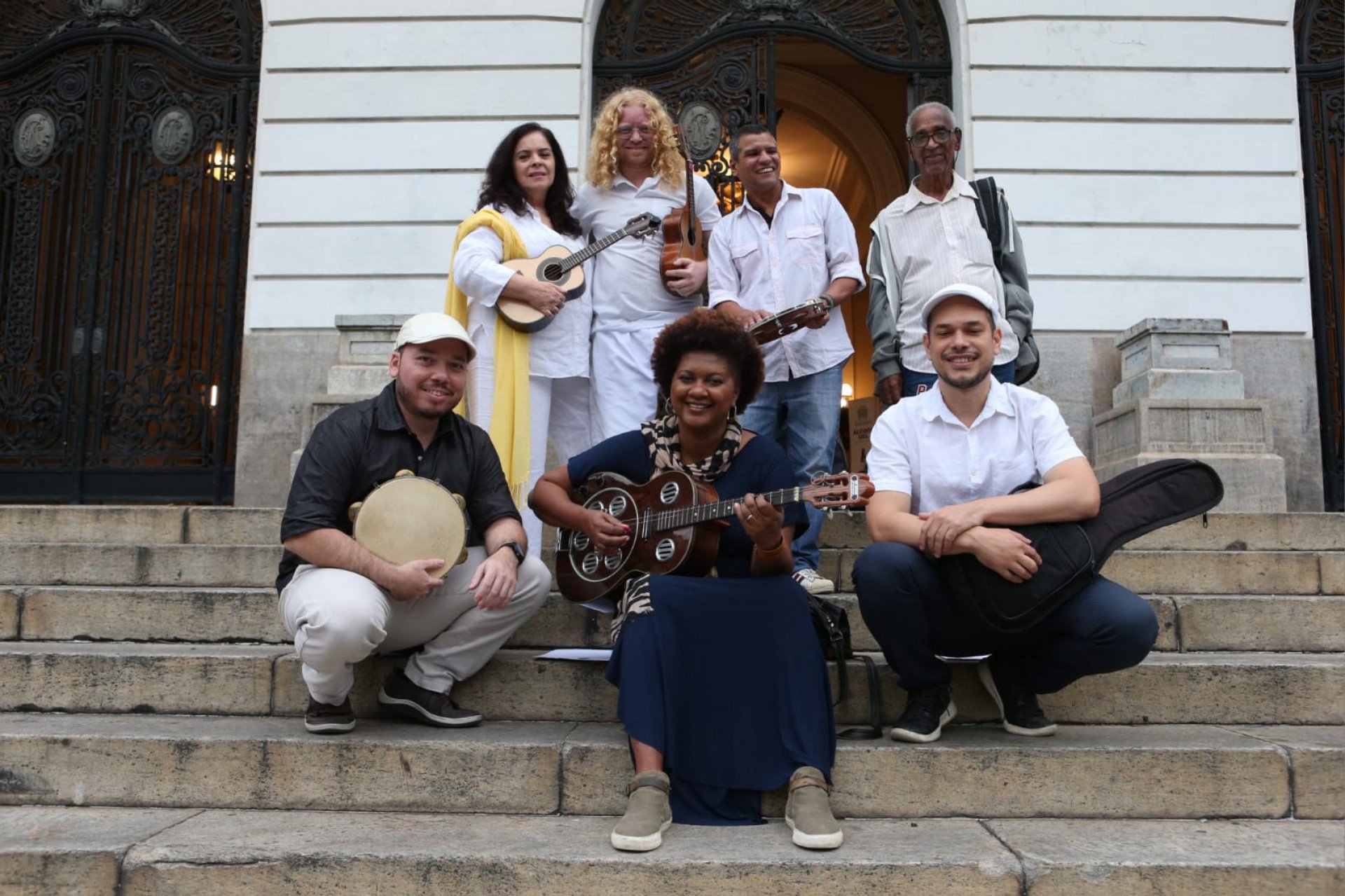
National Crying Day is celebrated on April 23, the date of Pixinguinha’s birthCléber Mendes / Agência O Dia
Published 04/23/2024 06:00
Inspired by European culture, choro has African influences in its melody, making it a genuinely Brazilian rhythm. The first groups emerged at the end of the 19th century, in the suburbs of Rio. Over the years, choro has consolidated itself as one of the most authentic forms of music in the country, incorporating elements of improvisation and pulsating rhythms.
In addition to Pixinguinha, Ernesto Nazareth, Chiquinha Gonzaga, Joaquim Callado, Jacob do Bandolim and Anacleto de Medeiros are the main representatives of the first generations, directly contributing to the consolidation of the musical style. In fact, the first international choro tour was carried out by the group ‘Os Batutas’, directed by Pixinguinha, in 1922. For six months, the band performed in Paris.
In May 2012, Rio City Hall declared the musical genre as Carioca Cultural Heritage, by decree 35,550. The document considered the relevance of the rhythm as one of the first musical manifestations in Rio and the musical legacy of the artists who produced songs. In February 2024, the National Historical and Artistic Heritage Institute (Iphan) recognized choro as the 53rd Intangible Cultural Heritage of Brazil.
The birth of National Crying Day
In an interview with DAY, Hamilton commented on the relevance of crying. “It is a national treasure and deserves to be cared for and revered forever. On National Choro Day, we remember masters such as Pixinguinha, Jacob do Bandolim, Chiquinha Gonzaga and many others who gave life to this unique style. May we always honor and preserve this rich musical heritage, celebrating with passion and joy”, said the musician.
The only choro school in Rio de Janeiro
The cavaquinist and composer, Luciana Rabello, was one of the founders of Portátil, the only choro school in Rio de Janeiro. “The school started 24 years ago. Before, we did a choro workshop with kids interested in music. Over time, this circle grew and had more than 200 people. So, as it wasn’t possible to do a circle with these people, we did the Portable School of Music”, he commented.
“Choro is all over the world, but it’s from Rio. Portátil has a branch in the Netherlands, for example. It’s been around for over 150 years and continues to evolve: it’s the soundtrack of a people. Pixinguinha was the great creator of this everything. He takes the baggage of 19th century music – which was already choro, but didn’t have that name – and builds the ‘chorinho’ of today. He was wonderful, a guy who didn’t make mistakes”, highlighted the musician.
Crying Train
Upon arriving in Olaria, the procession heads towards Praça Ramos Figueira, known as Pixinguinha’s stronghold, a place close to where the musician lived for years. O Crying Train of 2024 is scheduled to leave this Tuesday (23), starting at 8:30 am, on platform 13 of Central do Brasil. This year, Pixinguinha, Jacob do Bandolim, Severino Araújo, Chiquinha Gonzaga, Altamiro Carrilho, Raphael Rabello, Joaquim Callado and Paulo da Portela will be honored. Each wagon will be represented by a name.
“We made the first Trem do Choro in 2013. Before that, I went to the Escola Portátil de Música to learn how to play choro. It’s complex. To play it, it’s not simple: you need to know all the notes and study. I was born in Olaria and I have a family of musicians. Every Sunday, at my family’s gatherings, someone would play choro”, said Luiz Nunuka, to DAY.
The critic and historian Ary Vasconcelos (1926 – 2003) once made an accurate definition of Pixinguinha. “If you have 15 volumes to talk about all Brazilian popular music, rest assured that it is not enough. But, if you only have the space for one word, not everything is lost. Write quickly: ‘Pixinguinha'”.
*Reporting by intern Leonardo Marchetti, under the supervision of Thiago Antunes
